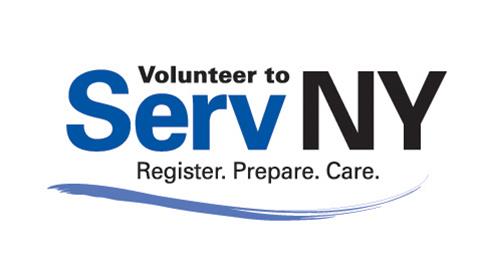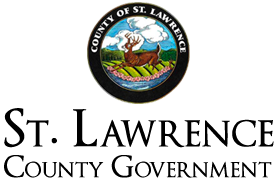Extreme Weather and Your Health
Extreme weather is intensifying temperatures, making heatwaves hotter and more frequent, and unusual cold snaps. Both extremes pose serious risks to human health.
Health Effects of Extreme Heat
-
Heat-Related Illnesses: Prolonged exposure to high temperatures can lead to heat exhaustion, heatstroke, and dehydration. These conditions are especially dangerous for the elderly, children, outdoor workers, and those with chronic illnesses.
-
Worsening of Chronic Diseases: Heat stress can worsen cardiovascular, respiratory, and kidney conditions. People with asthma or heart disease are at greater risk during heatwaves.
Health Effects of Cold Weather
-
Hypothermia and Frostbite: Exposure to extreme cold can cause body temperature to drop to dangerous levels, leading to hypothermia and frostbite, which can be fatal without prompt treatment.
-
Cardiovascular Stress: Cold temperatures can increase blood pressure and strain the heart, leading to a higher risk of heart attacks and strokes.
-
Respiratory Issues: Cold air can aggravate respiratory conditions like asthma, bronchitis, and chronic obstructive pulmonary disease (COPD).
-
Increased Infections: Cold, damp environments can weaken immune defenses and promote the spread of respiratory infections like flu and pneumonia.
Extreme Heat Resources
CDC (https://www.cdc.gov/disasters/extremeheat/index.html)
HEAT.gov (https://www.heat.gov/)
Ready.gov (https://www.ready.gov/heat)
Alternative Places to Go During a Heat Wave
Cooling Centers in St. Lawrence County
Beaches (https://www.visitstlc.com/beaches/)
Cooling Assistance in NY
(https://otda.ny.gov/programs/heap/#cooling-assistance)
Cold Weather Resources
Weather.gov (https://www.weather.gov/bgm/outreachextremecoldsafety)
Ready.gov (https://www.ready.gov/winter-ready)
CDC (https://www.cdc.gov/winter-weather/safety/index.html)
Heating Assistance in NY
(https://otda.ny.gov/programs/heap/)
Get Alerts
Ready.gov (https://www.ready.gov/alerts)
NY Alert (https://alert.ny.gov/) - messages can be received by phone, email, text and fax.
FEMA (https://www.ready.gov/fema-app)
NOAA Weather Radio (https://www.weather.gov/nwr/)
St. Lawrence County Sheriff’s App (https://apps.myocv.com/share/a40313617)

Preparing for Storms & Weathering Floods and Power Outages
Emergency Readiness
Emergencies disrupt hundreds of thousands of lives every year. Each disaster has lasting effects, both to people and property. If an emergency occurs in your community, local government and disaster-relief organizations will try to help you, but you need to be ready as well. Local responders may not be able to reach you immediately, or they may need to focus their efforts elsewhere.
You should know how to respond to severe weather or any disaster that could occur in your area—hurricanes, earthquakes, extreme cold, flooding, or terrorism.
You should also be ready to be self-sufficient for at least three days. This may mean providing for your own shelter, first aid, food, water, and sanitation.
Click Here to take the preparedness quiz
Click Here for the Refrigerator Guide
Click Here for Emegency Preparedness for Older Adults
Things You Can do Right Now to be Safer
- Check and change the batteries in your smoke alarms yearly and replace all alarms that are more than 10 years old.
- Make sure you know where your local fire department, police station, and hospital are and post a list of emergency phone numbers posted near all the telephones in your home.
- Organize and practice a family fire drill -- make sure your children know what your smoke detector sounds like and what to do if it goes off when they are sleeping.
- Locate the utility mains for your home and be sure you know how to turn them off manually: gas, electricity, and water.
- Create an emergency plan for your household, including your pets. Decide where your family will meet if a disaster does happen:
1) right outside your home in case of a sudden emergency, like a fire and 2) outside your neighborhood in case you can't return home -- ask an out of town friend to be your "family contact" to relay messages. - Prepare a disaster supply kit, complete with flashlights, batteries, blankets, and an emergency supply of water and food (and pet food!).
- Check the expiration dates of all over-the-counter medications -- discard all that are expired and replace any that are routinely needed.
- Visit with your neighbors and discuss how you would handle a disaster in your area. Talk to neighbors with special needs and help them become safer too!
Why Prepare?
Every citizen in this country is part of a national emergency management system that is all about protection–protecting people and property from all types of hazards.
Think of the national emergency management system as a pyramid with you, the citizen, forming the base of the structure. At this level, you have a responsibility to protect yourself and your family by knowing what to do before, during, and after an event. Some examples of what you can do follow:
Before:
- Know the risks and danger signs.
- Purchase insurance, including flood insurance, which is not part of your homeowner’s policy.
- Develop plans for what to do.
- Assemble a disaster supplies kit.
- Volunteer to help others.
During:
- Put your plan into action.
- Help others.
- Follow the advice and guidance of officials in charge of the event.
After:
- Repair damaged property.
- Take steps to prevent or reduce future loss.
For Information on Emergency Preparedness
Contact the Emergency Preparedness Coordinator at (315) 386-2325.

